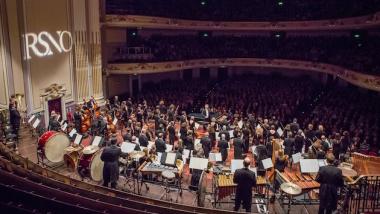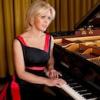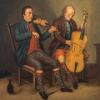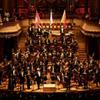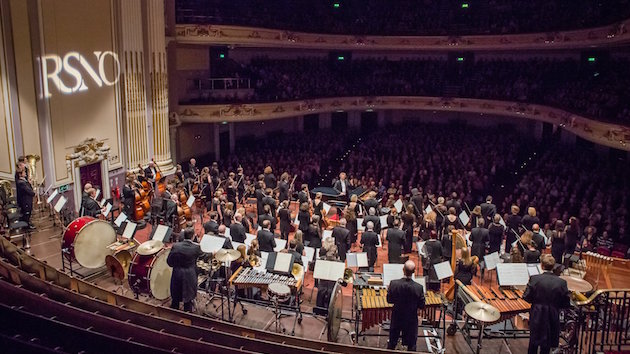
Live performance is volatile. Shared focus between performer and audience can electrically charge the music, an experience unobtainable from a pristine recording. But any gathering of several hundred humans can also make for surprising irregularities.
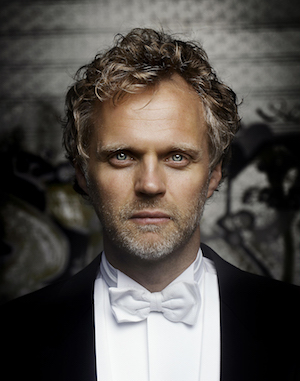
Both sides of the live experience marked the Royal Scottish National Orchestra’s visit to the Mondavi Center on Saturday night.
Pianist Olga Kern had just taken the stage, conductor Thomas Søndergård ready at the podium. Together they prepared for Sergei Rachmaninoff’s Rhapsody on a Theme of Paganini when a soft electronic beep emanated from house left. A second beep garnered giggles from the audience and a head turn from the maestro.
A third called the Mondavi staff to the area, and a fourth prompted Kern to have a little fun, finding the appropriate pitch at the piano and replying back to the small electronic intruder.
Staff soon traced the beep to a patron’s mobility chair, presumably sounding a low battery warning. After a tense moment that felt much longer, with no obvious solution and the maestro looking on anxiously, the patron and his companion graciously exited the auditorium.
Kern, Søndergård, and orchestra were soon ablaze with Rachmaninoff’s score, executing every turn flawlessly, but I was still focused on that absent listener. Was the ensuing silence worth his very visible departure? Would the noise have distracted Kern from an otherwise perfect performance? It was softer than the coughs that invariably rippled through the audience, and would have been masked during all but the most delicate moments.
I wondered if she and Søndergård should have pressed forward sooner, leaving the patrons to either silence the alarm or discreetly exit mid-performance. I wondered if the staff should have asked the audience and performers for 5 minutes to attempt a solution, perhaps ultimately allowing the patrons to remain.
In a way, the incident was a success for Jackson Hall’s accessibility, as the patron’s seating area near the exit allowed him a rapid departure. But surely, rather than the most compassionate solution, we chose the one that brought the quickest end to our collective discomfort.
Distractions aside, Kern and the RSNO had a breathtaking go of the Rachmaninoff. Balance between ensemble and soloist was exceptional, only the piano’s lowest register occasionally falling victim to an orchestral swell. Kern alternated between sparkling athleticism, icy clarity, and warm, organ-like sustain.
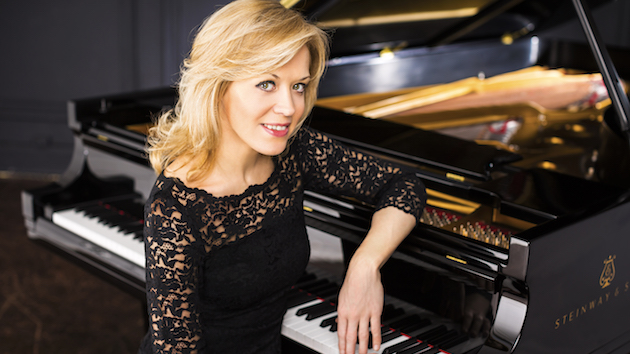
The audience called her back to the stage twice before she relented, dazzling us with an encore in the form of Anatoly Lyadov’s “Music Box.” Another standing ovation coaxed a second Russian encore from the Russian-born virtuoso: she dashed off Nikolai Rimsky-Korsakov’s “Flight of the Bumblebee” with ease.
Jean Sibelius’s Seventh Symphony opened the evening’s program. Cast in a single movement, this noble work hummed with warmth and restraint from Søndergård. The RSNO strings felt glued together with honey. Although Søndergård’s patience made for a satisfying first climax and cadence, the performance as a whole felt too polite. It was an effective foil to the energetic pieces that followed, but the Sibelius would have withstood a little more edge and volume.
Sergei Prokofiev’s Symphony No. 5 was the evening’s grandest work in both length and impact.
In perfect contrast to Sibelius’s round edges, Prokofiev deploys spiky scoring and enormous power in his Op. 100. Søndergård and orchestra held nothing back, carving out every gesture with exuberance. The second movement’s crisp staccato strings and unearthly woodwind filigree, the third’s stratospheric arcs, the overwhelming curtains of sound in the finale: every detail of this monumental work glowed neon, and that magical mutual focus gripped us all.
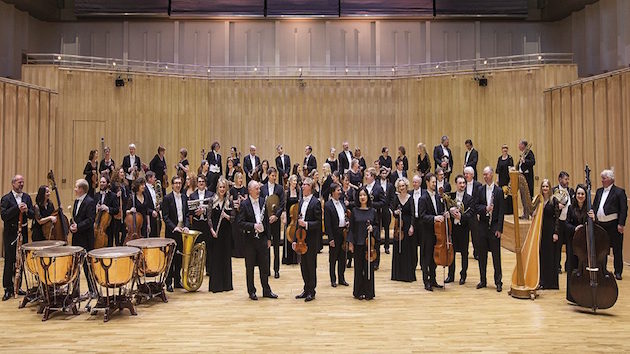
Like Kern, Søndergård and the RSNO treated us to two encores, Malcom Arnold’s first Scottish Dance and an arrangement of the traditional “Eightsome Reel.”
Before launching into the reel, Søndergård announced “it doesn’t get more Scottish than this.” As for orchestra experiences, it doesn’t get much better than RSNO at Mondavi.

